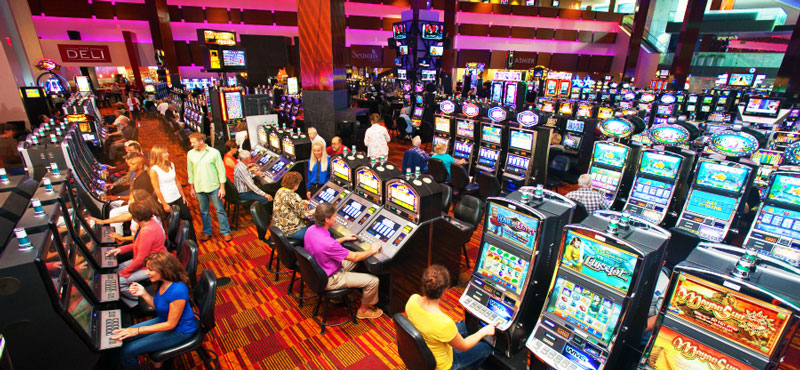
This world of gambling games has experienced a significant transformation in recent times, driven by technological advancements and changing consumer preferences. As an increasing number of gamers turn to online mediums for leisure, traditional gambling games are being adapted to satisfy the demands of a tech-savvy consumer base. This transition not just involves the shift from brick-and-mortar to digital spaces but also covers the evolution of gaming systems and player engagement techniques.
In this new digital age, video game creators are leveraging innovative techniques to create engaging experiences that resonate with a varied spectrum of gamers. From web-based slot games with breathtaking graphics to dynamic table activities that mimic the atmosphere of a live casino, the modification process is changing how we view and experience gambling games. As we navigate this captivating journey, it is evident that the prospect of gambling lies in the seamless integration of cutting-edge technology with the timeless allure of luck and tactics.
A Progression of Casino Entertainment
Casino entertainment have gone through significant transformations throughout history, demonstrating changes in technology, society, and gamer tastes. In early times, simple games of chance were played using rudimentary materials such as stones and animal remains. As societies evolved, so did the complexity of these games. The introduction of card games in the Middle Ages marked a key moment, leading to the development of popular titles like Texas Hold’em and blackjack, which are still played in the present. Over the years, the design of gambling establishments has also transformed, transitioning from small local locations to large, ornate establishments.
The 20th century brought about a change in the world of casino entertainment with the arrival of electronic gaming. Fruit machines emerged as a favored draw, captivating players with their vibrant lights and audio effects. This era also saw the rise of casino resorts, which integrated high-end accommodations with a wide variety of casino options. The launch of video games further expanded the landscape, allowing for more intricate designs and gameplay mechanics. These innovations not only pulled in a broader audience but also altered the way gambling games were played.
With the rise of the web in the final 90s and early 2000, casino games moved into a new online phase. Virtual casinos emerged, providing participants with the convenience of gaming from their homes. This transition required game developers to reconsider traditional designs and modify them for an engaging digital environment. Currently, advancements in tech, including smartphone gaming and virtual reality, continue to shape the progress of casino entertainment, creating immersive experiences that captivate gamblers like not before.
Key Features of Digital Casino Games
Digital casino games have changed the way gamers engage with casino gaming by offering captivating experiences that replicate the rush of traditional casinos. One of the most significant features is the integration of top-notch graphics and animations, which create a aesthetically captivating environment. Game creators focus on delivering authentic themes and compelling storylines that draw players into the game, boosting their overall experience. The capability to provide 3D visuals and stunning sound effects means that players can experience a dynamic atmosphere similar to what they would find on a casino floor.
Another essential aspect of digital casino games is the accessibility they offer to players worldwide. Digital platforms enable individuals to play their favorite games from the comfort of their own abodes or on the go through smartphones and tablets. This flexibility is accompanied by a diverse selection of game options, including slots, tabletop games, and live casino games. https://789p.so/ Players no longer need to drive to a casino to enjoy their preferred betting experiences, allowing a wider audience to engage with casino games.
Lastly, virtual gaming experiences frequently integrate cutting-edge features such as interactive gameplay and social interactions. Many games now allow players to go head-to-head against one another, join tournaments, or even share their accomplishments on social media. This transformation encourages a sense of belonging among players while promoting healthy competition. Additionally, features like modifiable avatars and in-game chat options enhance player interaction, making the digital gaming experience even more engaging for all users.
What Lies Ahead of Digital Gaming
As technology continues to evolve, the landscape of online gaming is set for significant change. Immersive and augmented reality are making waves, offering players an immersive experience that mirrors the excitement of being in a brick-and-mortar casino. These advancements create opportunities for game designers to introduce new game formats and dynamic elements, reshaping how players interact with their beloved casino games.
Additionally, the integration of AI is elevating user experiences and customizing gameplay. AI can analyze player behavior, offer tailored game options, and improve customer support through chatbots. This tailoring not only retains players occupied but also assists build a loyal community around particular casino platforms, positioning them for success in a competitive market.
In conclusion, the rise of mobile gaming is another crucial factor shaping the future of online gaming. With an ever-growing number of players enjoying casino games on their mobile devices, creators are gearing up for optimizing their platforms for mobile access. This shift allows players to enjoy casino games anywhere, paving the way for a more dynamic and approachable gaming environment that appeals to a wider audience.
